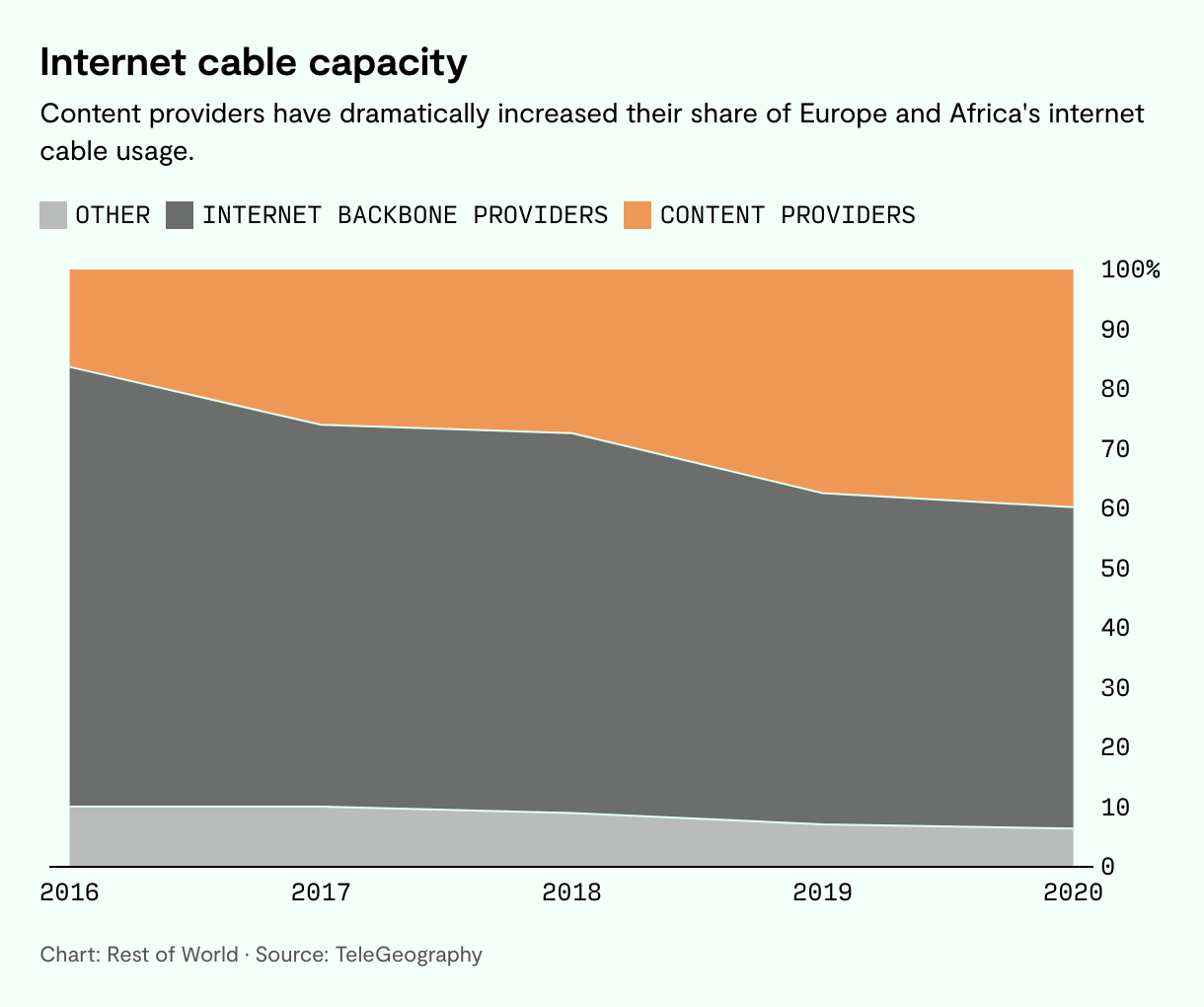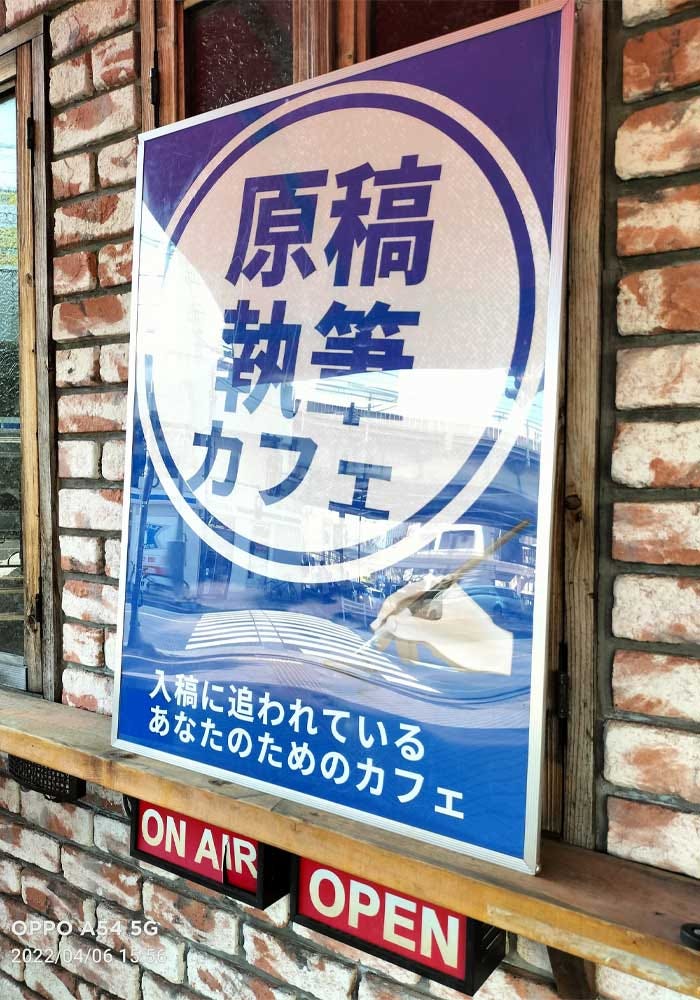My Robot Barista
Tippets #174: Underwater cables, Twitter, Writer's Fight Club, and more. Enjoy!
A warm welcome to you new readers who are getting this for the first time. Thank you for letting me be a small part of your week. As a reminder, Tippets is where I share what's on my mind and a curated assortment of tidbits and snippets (aka. tippets!) from around the web, usually centered around technology, startups, and psychology!
A recent trip to the mall — for all their flaws, still an excellent way to pass time with two toddlers on weekends when you glance at the clock expecting it to be lunchtime and it is only 9:11a — led to a surprising discovery: a robot barista.
The setup is built by Artly Coffee, a new entrant amongst a host of other ‘automated baristas’ out there. However, what stood out to me about Artly was how it actively tried to recreate the human barista experience. The setup was not a custom coffee machine that looks like an expensive vending machine. Instead it looked like a traditional coffee shop, complete with the La Marzocco bean grinder and machine, standard cups, and faux wood paneling.
Orders are placed through a tablet (Square serves as point of sale for those interested), and your order shows up on a big screen with wait time displayed. When it’s your turn the robot (ours was named Friday) starts the process like any barista would: grinding the beans and making the espresso shot.
Then comes frothing the milk.
And finally, latte art (this was particularly impressive to me considering the best latte art I can do looks like a bad Rorschach test).
Overall, not a bad cup of coffee.
A challenging hiring environment and increased automation across industries suggests natural encroachment of robots into restaurants and coffee shops. That said, I am not too concerned about my favorite coffee shops barista getting automated out of her job any time soon. The margin characteristics of cafes, coupled with the still slow throughput for the robots (we ended up waiting for close to 10 minutes for the cup of coffee), mean we are a still a ways away from fully automated coffee. But it’s definitely closer than I thought.
Tippets from Around the Web:
Google and Meta’s underwater cables up the stakes on internet control
If you’re reading this, odds are that access to the Internet is an afterthought. You only think about your Internet connection when you don’t have one, say during a power outage. Or while driving through the mountains. Certainly when cursing at the airline for making you pay to access the web during an hour and fifteen minute long flight between SF and LA, when it should just be included in the cost of the ticket.
This reality - ubiquitous access to the Internet and all its glory - is not true for billions of people around the world. According to a 2019 UNESCO report, only 55% of global households have an internet connection, splitting out to 87% of households in developed countries and 47% in developing countries. The African continent, with a population of 1.4 billion, is the least connected.
A number of airborne efforts have been launched by US tech companies to bridge the gap and help these countries and their populations access the web (and, of course, become users of said company’s products). Google had Project Loon, big balloons that would share connectivity down to hard to reach areas. Facebook had plans to beam Internet down to Africa from satellites, as well as drones that were going to provide internet connectivity. SpaceX’s Starlink has launched 2,200 satellites into the sky aiming to provide access on Earth. Unfortunately, outside of Starlink (which has 150k daily active users in Ukraine alone), all of those air bound efforts have been shuttered.
As pointed out in this excellent article, going underwater might be a better way to offer connectivity. And both Facebook and Google are fighting for control of the underlying infrastructure, both with undersea cable projects “that will connect Africa to the global internet more robustly than ever.” The article also raises important questions that extend well beyond Africa and developing markets about who should control the pipes and thus the Internet.
Our Misguided Obsession with Twitter
As a follow-up to my post on the winner from Musk’s Twitter buy, I thought it worth sharing this article by Cal Newport. He digs into why I felt “the world has gone wild, hot takes flying about faster than a SpaceX Falcon 9” despite Twitter being “one of the least successful of the major social-media companies, with revenues last year that were more than twenty times less than what was earned by Mark Zuckerberg’s Meta.”
The problem with this platform at the moment, though, is that too many people in positions of power remain hypnotized by its stylized violence. Academic and business leaders will enact wild shifts in policy or practices at the slightest hint that these digital combatants are aiming weapons of virality in their direction. Politicians, for their part, seem to increasingly craft their behavior, and sometimes even legislation, to please not their constituents but the platform’s radicalized tastemakers.
Our problem is not how these games are played but the fact that so many people in positions of power keep taking them seriously.
Twitter should be treated as the spectacle that it appears to be: something that entertains a small and privileged subset of our population, not a de facto town square where the value of institutions and individuals is adjudicated.
Twitter CEO expects Musk deal to close but is preparing for other scenarios
Speaking of Twitter, the latest in the saga is the deal is on hold.


Again, would highly encourage a read of the always excellent Matt Levine, who says the contract is pretty buttoned up and should Musk walk away from the deal, he’d have to put up a whole lot of money. That said:
As one merger arbitrageur put it to me, “If you’re reading the contract, you’ve lost. Lots of people reading the contract this morning.” Sadly I am one of them, and I do feel like I’ve lost…
Elon Musk has made it very clear that the rule of law simply does not apply to him, and this has worked well for him. If he wants to ignore the merger agreement that he signed, he will. If you take him to court, he will put up a brutal fight and make things as unpleasant as possible for you. This puts his counterparties, like Twitter, in a tough position. They have a contract. But so what?
Much more to come, I’m sure!
Tokyo’s Manuscript Writing Cafe only allows writers on a deadline, and won’t let them leave until finished
Add the Manuscript Writing Cafe in Tokyo to the list of reasons I need get to Japan. Essentially, Writer’s Fight Club.
1. Upon entering the store, write down at the reception desk how many words and by what time you are going to write your manuscript.
2. The manager asks you every hour how your manuscript is coming along.
3. You are not allowed to leave the store until you have finished writing your manuscript or writing project.
Having just finished reading Ernest Hemingway’s ‘memoir’, “A Moveable Feast”, I’m tempted to say had he been alive today I think he might have quite enjoyed this place. Assuming, of course, the food and drink is good!
Body found in barrel in Lake Mead may date back to 1980s, more likely to appear as water recedes, Las Vegas police say
Talk about unintended consequences of climate change. Due to severe drought Lake Mead, the largest reservoir in the US, formed by the Hoover Dam on the Colorado River, is receding. As a key water source for 25 million people, this problem has major consequences for the western United States. One that probably wasn’t on your bingo card? Newly discovered crime scenes.
The body found in a barrel at Lake Mead on Sunday may have been underwater for as long as four decades and more bodies are likely to appear as the lake recedes due to severe drought, Las Vegas Metro police homicide Lt. Ray Spencer told the 8 News Now I-Team.
Yikes.
A fun tweet to end:

Quote I’m thinking about: “All you have to do is write one true sentence. Write the truest sentence that you know. So finally I would write one true sentence, and then go on from there. It was easy then because there was always one true sentence that you knew or had seen or had heard someone say.” – Ernest Hemingway
If you enjoyed this issue, doctors recommend you click the button below and get Tippets by Taps in your inbox every week. It’s good for your health!
Please share what you’re reading! If you have insight on anything mentioned above or have any interesting links/papers/books that you think would be worth sharing in future issues of Tippets, please reach out! Click here, reply to this email, or DM me on Twitter at @taps.
How did you like this week’s Tippets? Your feedback helps me make this better every issue.









